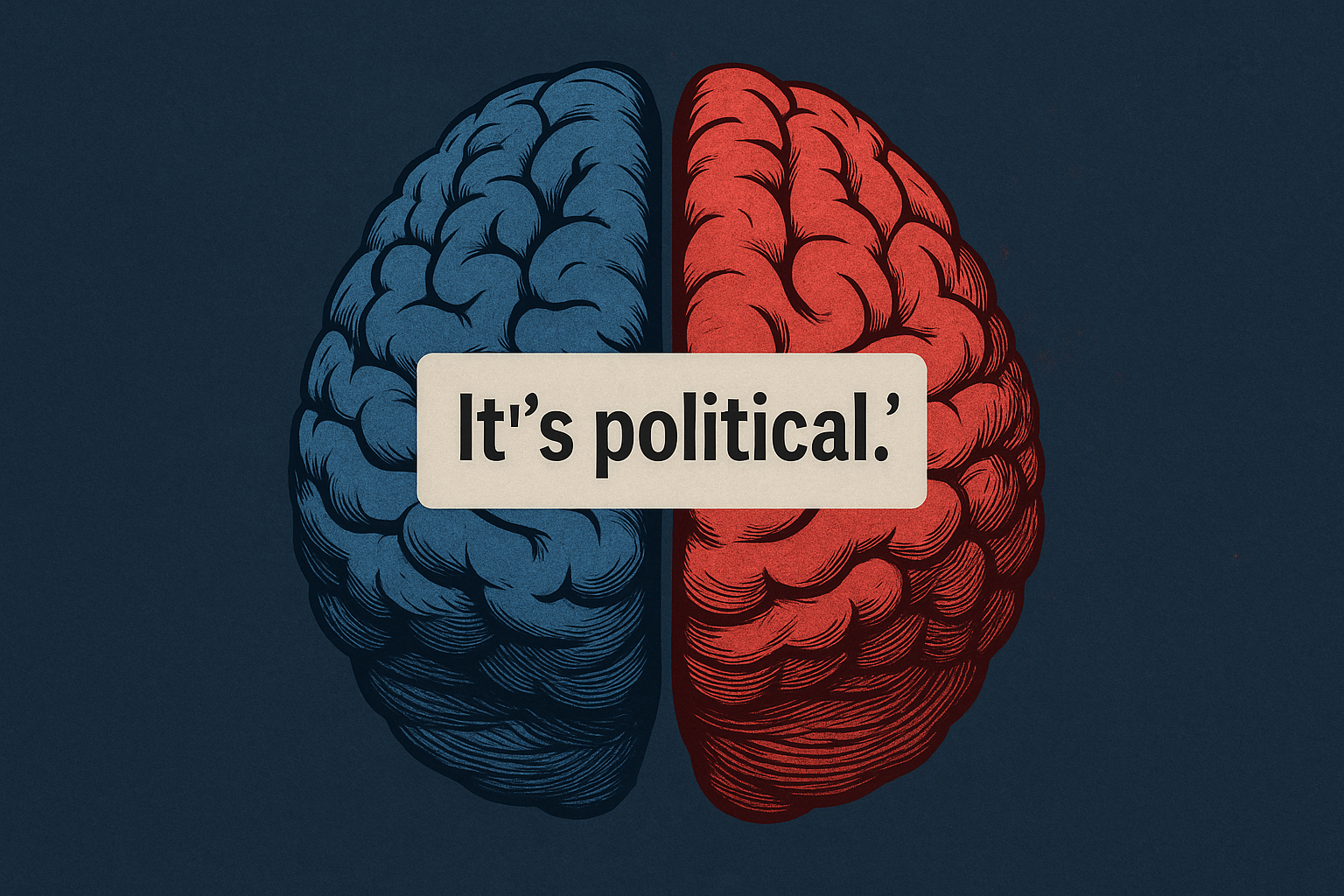In today’s politically polarized environment, inclusive leadership is more important than ever. Effective leaders need to skillfully manage the challenges that arise from differing viewpoints, particularly when interacting with those who seem to hold opposing political beliefs. It’s essential to avoid inadvertently reinforcing negative stereotypes. This means not only acknowledging the variety of beliefs that exist but also engaging with these differing perspectives in a respectful and constructive way. While this sounds simple, it can be quite challenging to put into practice.

A key principle of inclusive leadership is the commitment to see “Beyond the Binary,” which is crucial for creating more inclusive organizations. This concept encourages us to avoid categorizing individuals, places, and things based on stereotypes. We need to stay away from absolute terms like “Everyone,” “Always,” or “They,” such as in the statement, “They always tell everyone to do it their way.” Such language simplifies our thought processes and feeds into our brain’s bias toward oversimplification. This bias is intensified by our constant exposure to digital noise, underscoring the need to move beyond binary thinking that limits our perspective. A more inclusive approach is to embrace the complexity and nuance of situations, recognizing that this is not our default mindset and often requires more cognitive effort.
Snap Judgements Can Breed Mistrust
Moreover, inclusive leadership requires collective decision-making. Collective decision-making acknowledges there is more to each individual than just their categorization as a “red” or “blue” or “liberal” or “conservative” and frequently requires personal connections to understand what shapes political beliefs. A socialist who owns a business, (yes, they do exist!), may provide insights into the challenges of balancing economic responsibility with social equity. Instead of dismissing their standpoint, leaders can leverage such perspectives to foster innovation and collaboration, demonstrating that divergent views can coexist meaningfully. Step one is to move beyond the binary and remain curious rather than certain. Curious to learn more about that person rather than assume they are part of a greater problem or some type of enemy. Listen deeply to understand the essence of what is being shared and allow it to shape the final decision. Most strategic decisions take time. Consideration. They are not snap judgements.

Similarly, viewing team members with opposing views as adversaries is both damaging and counterproductive. For example, a pacifist who owns a gun for self-defense challenges conventional wisdom but also presents an opportunity for meaningful conversation. By exploring these complexities, inclusive leaders can bridge gaps, find common ground, and foster environments of mutual respect, rather than amplifying divisions. While finding common ground can be challenging, it is not impossible. When it is reached, most people walk away wanting more. These conversations serve to set up the next one, with the relationship prioritized over winning the argument or asserting moral superiority.
Building Bridges to Reduce Division
The risks of making damning indictments of character based on political leanings are significant. A liberal who is skeptical of vaccines or a conservative who believes in climate change may appear to contradict their political allegiance, but labeling them as brainless or brainwashed can stifle dialogue. Instead, an inclusive approach values every individual’s right to explore and question, fostering environments where productive discussions can occur. This takes time. It may even take more than one conversation. But if the goal is to deepen understanding, common ground can be found.

In conclusion, inclusive leadership across the political spectrum is essential for cultivating environments that thrive on open dialogue and understanding. By avoiding assumptions and embracing the complexity of human beliefs, leaders can weave a richer tapestry of collaboration and innovation. This commitment to inclusivity strengthens relationships within diverse groups while enhancing organizational effectiveness and community cohesion. In an increasingly polarized world, the ability to lead inclusively is more critical than ever, representing an evolutionary shift necessary for growth and understanding as individuals and as a society.
Take the Percipio Company Challenge
Between now and election day (or whenever if you’re reading this after 11/5/2024), challenge yourself to step out of your own perspective. Look within your circle of friends, family, or colleagues for someone who matches one of the examples below. Some scenarios may feel provocative, but remember, the goal is not to prove anyone right or wrong. Instead, seek to understand and explore how these contradictions coexist:
- You’re a progressive who supports the death penalty, or a conservative who opposes it.
- You’re a pro-family liberal who’s against abortion, or a conservative who supports a woman’s right to privacy.
- You’re a socialist who owns a business, or a capitalist with fat government contracts.
- You’re a pacifist who owns a gun for self-defense, or a war veteran who believes in non-violence.
- You’re a feminist who supports traditional gender roles, or a conservative who believes that gender is a non-binary social construct.
- You’re a vegetarian who loves the taste of bacon, or a meat-eater who’s passionate about climate change.
- You’re a liberal who’s skeptical of vaccines, or a conservative who believes in climate change.
- You’re a right-winger who believes in universal health care, or a left-winger who is a strong gun rights supporter.
- You’re a Democrat who loves Kid Rock, or a Republican who prefers Taylor Swift.
- You’re an atheist who enjoys attending religious ceremonies, or a devout Christian who loves science fiction.
Explore where the conversation goes. Are there subjects that are considered taboo? Too volatile? Too controversial? That’s fine. Leave them for another day. When you’re in your own info-bubble, remember that when you hear “How can ½ the US be so stupid?” There’s a very similar sentiment being spun on the other side.
Share This Story, Choose Your Platform!

Percipio Company is led by Matthew Cahill. His deep expertise in cognitive, social, and workplace biases is rooted in the belief that if you have a brain, you have bias®. He works with executives to reduce mental mistakes, strengthen workplace relationships & disrupt existing bias within current HR processes, meeting protocols and corporate policies. Matthew has demonstrated success with large clients like LinkedIn, Salesforce and dozens of small to mid-size companies looking to create more inclusive workplaces, work smarter, generate more revenue and move from bias to belonging®.





